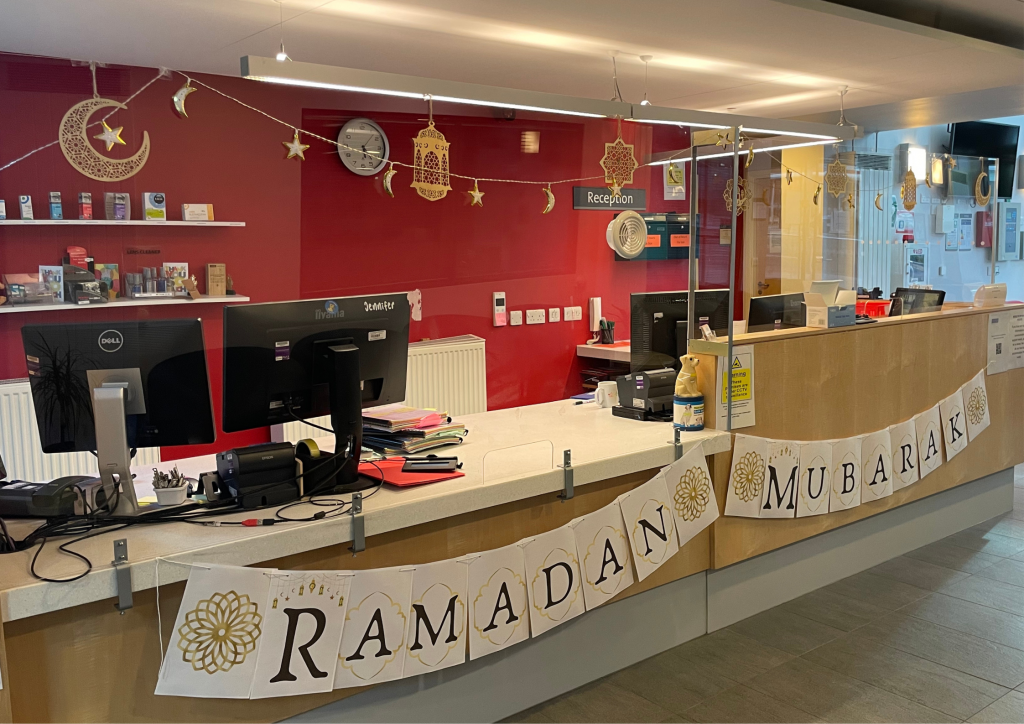
Fatima Malik: What Ramadan means to me
I’m looking forward to starting a month-long spiritual retreat – right here, between campus, home, and a few of my favourite local mosques. That’s what Ramadan is for me. Like 2 billion Muslims around the world, I’ll fast during the daytime, and wake during the nights for congregational worship and private prayer; whilst practising gratitude & generosity, as part of the yearly soul-bootcamp, in hopes of becoming a better version of myself.
Ramadan has always been synonymous with 3 words. No, I don’t mean “Not even water?”* The words that come to my mind are; Taqwa, Qur’an, and Du’a.
- Taqwa – means “consciousness” or “mindfulness” of Allah (arabic word for God).
“O believers! Fasting is prescribed for you—as it was for those before you—so perhaps you will become mindful of Allah” [2:183]
Fasting aims to tune awareness so acutely on Allah that it’s impossible to not think of Him in every waking moment. It’s the perfect training for my distracted mind, so I can re-focus on Him alone whilst going about my life. Others are often amazed, asking how I can go so many hours without food. But my physical hunger is subsided by the fulfilment of my spiritual needs.
Fasting is such a private act of worship that my true intention and sincerity feel like a little secret between me & Allah. The Taqwa I try to attain provides a much-needed faith boost and recharges my soul for the coming year.
- Qur’an – the holy book of Islam, encapsulating within it messages of hope & mercy; full to the brim with life lessons; every verse a personal reminder, and connecting to it is like coming home to myself.
“The month of Ramaḍān [is that] in which was revealed the Qur’ān, a guidance for the people and clear proofs of guidance and criterion” [2:185]
The Qur’an is food for my soul, nourishing & nurturing my spirit in Ramadan, as I prioritise my connection with it; via personal recitation, quiet reflection, or as I hope between Mosques each night for Taraweeh (congregational prayers) or Qiyaam (prayers after midnight) where it is recited aloud, its unique melody resonating with every fibre of the entire congregation. The lack of sleep is more than made up for by the sweetness I experience.
- Du’a – means to invocate, supplicate, call out, pray.
“And when My servants ask you, (O Muḥammad), concerning Me – indeed I am near. I respond to the invocation of the supplicant when he calls upon Me.” [2:186]
Considered the ultimate form of worship, du’a lets me build a personal connection & closeness to Allah whilst cultivating humbleness and hope. I find it’s a therapeutic state where admitting my humanness is no longer a weakness; and raising my hands to talk to Allah, becomes my spiritual superpower. Du’a is a safe space between me and my Lord, where no worry is too troublesome, no need too big, no want too trivial, to voice out to Him and let Him lighten my load.
But this Ramadan more than ever before, I, like many others, will be distracted from our own needs and desires when we raise our hands; busy supplicating for all those suffering around the world; for their peace, security, and safety.
The Prophet (peace be upon him) said: “The parable of the believers in their affection, mercy, and compassion for each other is that of a body. When any limb aches, the whole body reacts with sleeplessness and fever.” [Bukhari]
My prayers for them and feeling pain at their suffering are part and parcel of my faith, just as much as worship & fasting, and without this my spirituality would be lacking and incomplete.
*(P.S, No, not even water during daylight hours … but at least I’m fortunate enough to know I have water to look forward to at sunset; so as I drink mine, I’ll be praying for the quenching of the thirst of all those who do not have it.)
By Fatima Malik – Senior Clinical Teacher in Optometry, Faculty of Biology, Medicine and Health






0 Comments